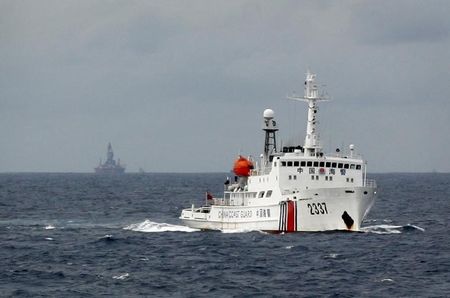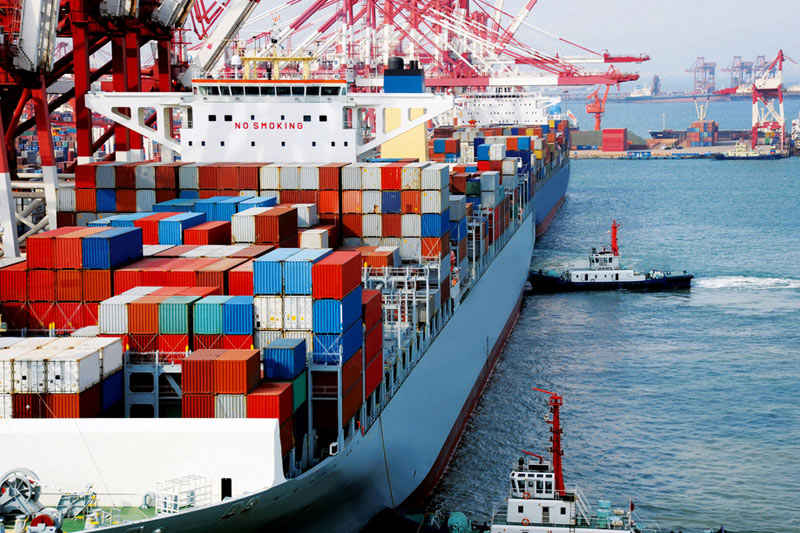By Lesley Wroughton
SYDNEY (Reuters) - The United States will monitor the South China Sea to see whether "de-escalatory steps" are being taken, a U.S. State Department official said on Monday, a day after China resisted pressure to rein in actions in the disputed waters.
The official spoke as U.S. Secretary of State John Kerry arrived in Sydney for talks on regional security with Australian officials, that will also involve Defense Secretary Chuck Hagel.
A U.S. proposal for a freeze on provocative acts in the South China Sea got a cool response from China and some Southeast Asian nations at a regional meeting at the weekend, an apparent setback to U.S. efforts to thwart China's assertive moves.
The U.S. official said the United States would follow up on those talks by assessing an ASEAN-China meeting due in a few weeks time on implementing a 2002 declaration on conduct in the South China Sea, something that "equates to the freeze."
"We will also be monitoring the actual situation around the rocks, reefs, and shoals in the South China Sea," he said.
China's Xinhua state news agency accused Washington of "stoking the flames," and "further emboldening countries like the Philippines and Vietnam to take a hardline stance against China, raising suspicion over the real intention of the United States and make an amicable solution more difficult to reach."
"It is a painful reality that Uncle Sam has left too many places in chaos after it stepped in, as what people are witnessing now in Iraq, Syria and Libya," Xinhua added in a commentary. "The South China Sea should not be the next one."
A spokeswoman for the U.S. State Department hit back by saying the United States was not responsible for fomenting instability in the South China Sea.
"It's the aggressive acts the Chinese have taken that are doing do," Marie Harf told a regular news briefing.
"Everything that we are doing is designed to lower tensions, to get people (to) resolve their difference diplomatically and not through coercive and destabilising measures like we've seen the Chinese take increasingly over the past several months."
SPIKE IN TENSIONSSouth China Sea tensions spiked in May when China parked a giant oil rig in waters also claimed by Vietnam. The United States and the Philippines have both called for a freeze in such moves, as well as on building and land reclamation work on disputed islands.
The rancour over the disputed sea has split ASEAN, with several states including some of the claimant nations reluctant to jeopardise rising trade and investment ties with China.
China has been able to head off regional action on the maritime issue before, most notably in 2012 when an ASEAN meeting chaired by Chinese ally Cambodia broke down in acrimony.
Australia was one of the countries to support the U.S. proposal at the weekend ASEAN meeting in Myanmar.
The U.S.-Australia meetings will include discussions on cooperation in missile defence, cyber security and maritime security, U.S. Defense Secretary Chuck Hagel told reporters at a briefing with Australian counterpart David Johnston.
The two sides will also sign an agreement reached between U.S. President Barack Obama and Australian Prime Minister Tony Abbott on the deployment of U.S. marines to Australia for joint exercises and training in areas such as disaster relief.
Hagel said the Unite States was firmly committed to its policy of a strategic rebalance to the Asia-Pacific, something that has irked China and been questioned by allies who wonder the extent of U.S. commitment to the region.
"We have an interest here, we will continue to have an interest here, we are a Pacific power," he said.
Some 1,150 Marines are stationed in Darwin in Australia's tropical north under a 2011 agreement that launched Obama's "pivot" to Asia.

The contingent, primed to respond to regional conflicts and humanitarian crises, is expected to swell to 2,500 by 2017. Johnston said troop numbers would be discussed at Tuesday's talks, amid reports that the U.S. plans to station more fighter jets and bombers in Australia's north.
(Additional reporting by Jane Wardell in Sydney, Ben Blanchard in Beijing and David Brunnstrom in Washington; Editing by Jeremy Laurence, Robert Birsel and Tom Brown)
